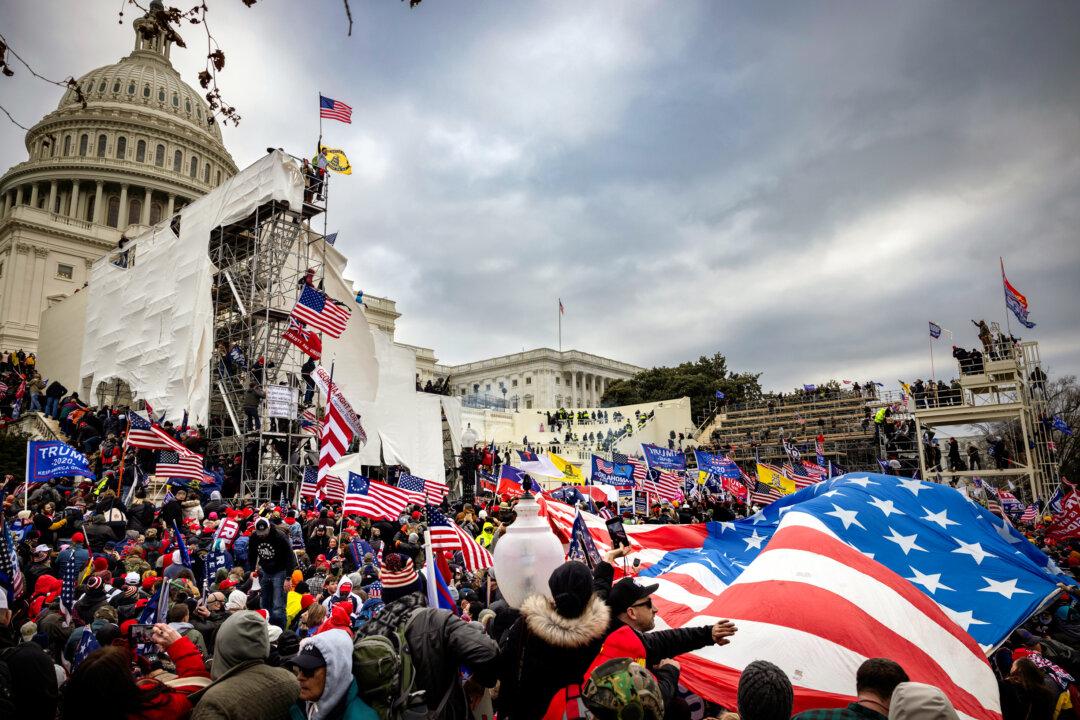President Donald Trump’s pardon for people convicted of charges related to the Jan. 6, 2021, breach of the U.S. Capitol does not extend to any crime “only connected to January 6 by the happenstance that it was uncovered during investigation of the unrelated January 6 offenses,” a federal appeals court ruled on April 2.
A divided three-judge panel of the U.S. Court of Appeals for the District of Columbia Circuit upheld a lower court ruling that rejected arguments from Dan Wilson, a Jan. 6 defendant who said that Trump’s relief should cover firearm convictions that stemmed from a search conducted as part of the probe into his actions on Jan. 6, 2021.





